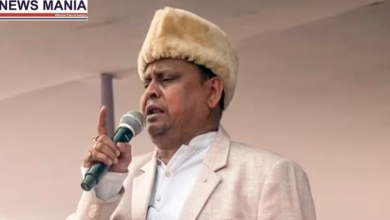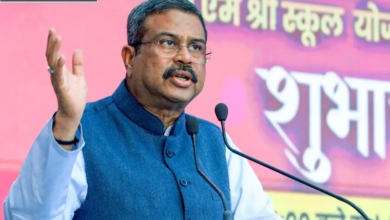
News Mania Desk / Agnibeena Ghosh/15th May 2024
The Supreme Court’s order for the release of Newsclick founder-editor Prabir Purkayastha highlights the importance of due process and adherence to proper procedure, particularly in cases involving stringent laws such as the Unlawful Activities (Prevention) Act (UAPA). Purkayastha’s arrest on October 3, 2023, by the Delhi Police’s Special Cell, invoking provisions of the UAPA, triggered legal scrutiny due to alleged procedural irregularities and violations of constitutional safeguards.
The Supreme Court’s ruling, delivered by a Bench led by Justice B R Gavai, underscored that the failure of the Delhi Police to inform Purkayastha of the grounds of his arrest before taking him into custody rendered the arrest invalid. This decision carries significant implications as it reinforces the principle that even in cases involving serious charges, adherence to due process is paramount to prevent arbitrary action.
Purkayastha’s arrest under the UAPA was based on allegations that Newsclick received funds for pro-China propaganda, invoking various sections of the UAPA and the Indian Penal Code (IPC) related to unlawful activities, terrorist acts, conspiracy, and promoting enmity between groups. However, Purkayastha’s legal defense argued that the arrest lacked due process, citing instances where he was not informed of the grounds of arrest promptly and where legal proceedings were conducted without prior notice to his lawyers.
One crucial aspect of the case was the timing of the remand order, which official records indicated was signed before Purkayastha was produced before the judge or his lawyers were informed. Additionally, Purkayastha’s legal team contended that an unsigned copy of the remand application was sent via WhatsApp to his lawyers without specifying the time or grounds of arrest, further raising concerns about procedural irregularities.
The Supreme Court’s ruling in Purkayastha’s case aligns with constitutional safeguards outlined in Article 22(1), which ensures protection against arbitrary arrest and detention by mandating that individuals must be promptly informed of the grounds for their arrest. The Court’s reference to its earlier decision in Pankaj Bansal versus Union of India underscores the importance of furnishing written grounds of arrest to the detained individual as a fundamental requirement of due process.
The significance of adhering to procedural safeguards is particularly pronounced in cases involving stringent legislation like the UAPA and the Prevention of Money Laundering Act (PMLA), where the bar for granting bail is exceptionally high. The Court’s emphasis on the requirement to furnish written grounds of arrest reflects a commitment to upholding constitutional principles and protecting individuals’ rights against arbitrary state action.
Solicitor General Tushar Mehta, representing the Delhi government, had argued against Purkayastha’s release, citing the seriousness of the charges and invoking national security concerns. However, the Court’s decision prioritized the adherence to due process over the severity of the allegations, reaffirming the principle that constitutional safeguards must be upheld even in cases involving national security interests.
The legal scrutiny surrounding Purkayastha’s arrest underscores the broader debate surrounding the balance between national security imperatives and individual rights. While the state has a legitimate interest in combating terrorism and safeguarding national integrity, it must do so within the bounds of the law and without compromising fundamental rights.
The Supreme Court’s order for Prabir Purkayastha’s release underscores the fundamental importance of due process and adherence to proper procedure, particularly in cases involving stringent laws and serious charges. Upholding constitutional safeguards is essential to prevent arbitrary state action and safeguard individual rights, even in the context of national security concerns.






